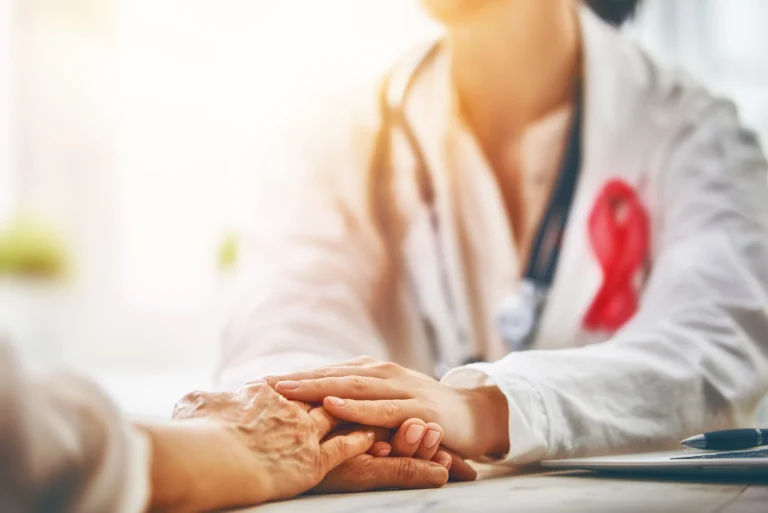
Cancer is one of the most challenging health conditions, affecting millions of lives worldwide. The diagnosis often brings a wave of uncertainty and fear, profoundly impacting both the physical and emotional aspects of patients’ lives. Managing these effects requires a comprehensive understanding of how cancer disrupts well-being and necessitates support from healthcare professionals, including the Cancer Specialist in Hyderabad. Let’s delve into the multifaceted impact of cancer on physical and emotional health.
Physical Health Impacts
1. Fatigue and Weakness Cancer-related fatigue is one of the most pervasive symptoms, with nearly every patient experiencing some level of physical exhaustion. It may stem from the disease itself, treatment side effects, or a combination of both. Chemotherapy, radiation therapy, and surgeries can significantly drain the body’s energy reserves, leaving patients feeling weak and unable to perform daily activities.
2. Pain and Discomfort Pain is a frequent concern for many cancer patients. Tumors can press against nerves or bones, causing localized or referred pain. In some cases, treatment methods like surgery or radiation can also lead to discomfort. Pain management becomes a crucial aspect of care, often requiring specialized interventions to ensure patients maintain quality of life.
3. Digestive Issues Cancer and its treatments can cause a range of digestive issues, including nausea, vomiting, constipation, and loss of appetite. Chemotherapy is notorious for triggering gastrointestinal symptoms, which can make it difficult for patients to maintain adequate nutrition, thus leading to weight loss and malnutrition.
4. Hair Loss Hair loss is a well-known side effect of chemotherapy, causing distress for many patients. While it is a visible sign of the treatment’s impact rather than the disease itself, it can significantly affect a patient’s self-esteem and confidence.
5. Immune System Suppression Cancer treatments, particularly chemotherapy, can weaken the immune system, leaving patients vulnerable to infections. This condition, known as neutropenia, makes even mild illnesses potentially dangerous, necessitating heightened precautions to prevent exposure to pathogens.
6. Lymphedema Lymphedema, or swelling of the limbs, can occur due to lymph node removal or radiation therapy, which affects the lymphatic system. This swelling often requires ongoing management through physiotherapy, compression garments, and lifestyle modifications.
Emotional Health Impacts
1. Anxiety and Fear A cancer diagnosis often triggers intense anxiety and fear, not just about treatment and its side effects but also regarding survival and recurrence. Patients grapple with the uncertainty of their future, which can lead to constant worry and a pervasive sense of dread.
2. Depression Depression is a common consequence of living with cancer. The burden of physical symptoms, treatment side effects, and lifestyle changes can become overwhelming, leading to feelings of hopelessness and helplessness. This emotional turmoil can sometimes go unnoticed, underscoring the importance of regular mental health check-ins.
3. Body Image Issues Treatments like surgery, chemotherapy, and radiation therapy can cause visible changes, affecting how patients perceive themselves. Surgical scars, weight fluctuations, and hair loss can significantly impact self-image and contribute to low self-esteem.
4. Isolation and Loneliness Cancer can be an isolating experience, even when surrounded by supportive friends and family. Patients often feel that others cannot fully understand their struggles, leading to withdrawal from social interactions. Additionally, weakened immune systems may require them to limit contact with others, further exacerbating the feeling of loneliness.
5. Relationship Strains The stress of cancer can strain relationships, whether with partners, family members, or friends. Caregivers may also experience emotional distress, which can create a tense environment. Financial strains and role shifts within the family unit add to the complexity of maintaining healthy relationships.
6. Survivor’s Guilt Survivors may experience guilt, especially if they have lost friends or fellow patients to the disease. They often question why they survived while others did not, leading to an emotional conflict that requires careful counseling and support.
Supporting Physical and Emotional Health
1. Comprehensive Medical Care Seeking the best possible medical care from a trusted Cancer Specialist in Hyderabad is crucial. They can tailor treatment plans that minimize side effects and provide supportive therapies to help manage symptoms.
2. Nutritional Support A well-balanced diet is vital in supporting physical health during cancer treatment. Nutritionists can recommend foods that boost energy levels and immune function, helping patients maintain their strength.
3. Pain Management Strategies Effective pain management requires a combination of medication, physiotherapy, and alternative therapies like acupuncture or massage to relieve discomfort and improve mobility.
4. Psychological Counseling Psychological counseling is crucial for patients and caregivers alike. Cognitive-behavioral therapy, support groups, and one-on-one counseling sessions can help manage anxiety, depression, and other emotional challenges.
5. Exercise and Physical Therapy Regular exercise, tailored to the patient’s capabilities, can improve energy levels, reduce fatigue, and strengthen muscles. Physiotherapy is also valuable for managing lymphedema and restoring mobility.
6. Social Support Networks Connecting with other patients and survivors through support groups or social media communities can alleviate loneliness and provide a safe space for sharing experiences and advice.
Conclusion
Cancer significantly impacts both physical and emotional health, often leaving patients with complex challenges that extend beyond the disease itself. With the guidance of a Cancer Specialist in Hyderabad and a comprehensive care team, patients can access effective treatment, symptom management, and emotional support to navigate their journey toward recovery. Emphasizing both physical and emotional well-being ensures that patients receive holistic care tailored to their needs, enabling them to maintain quality of life during and after treatment.